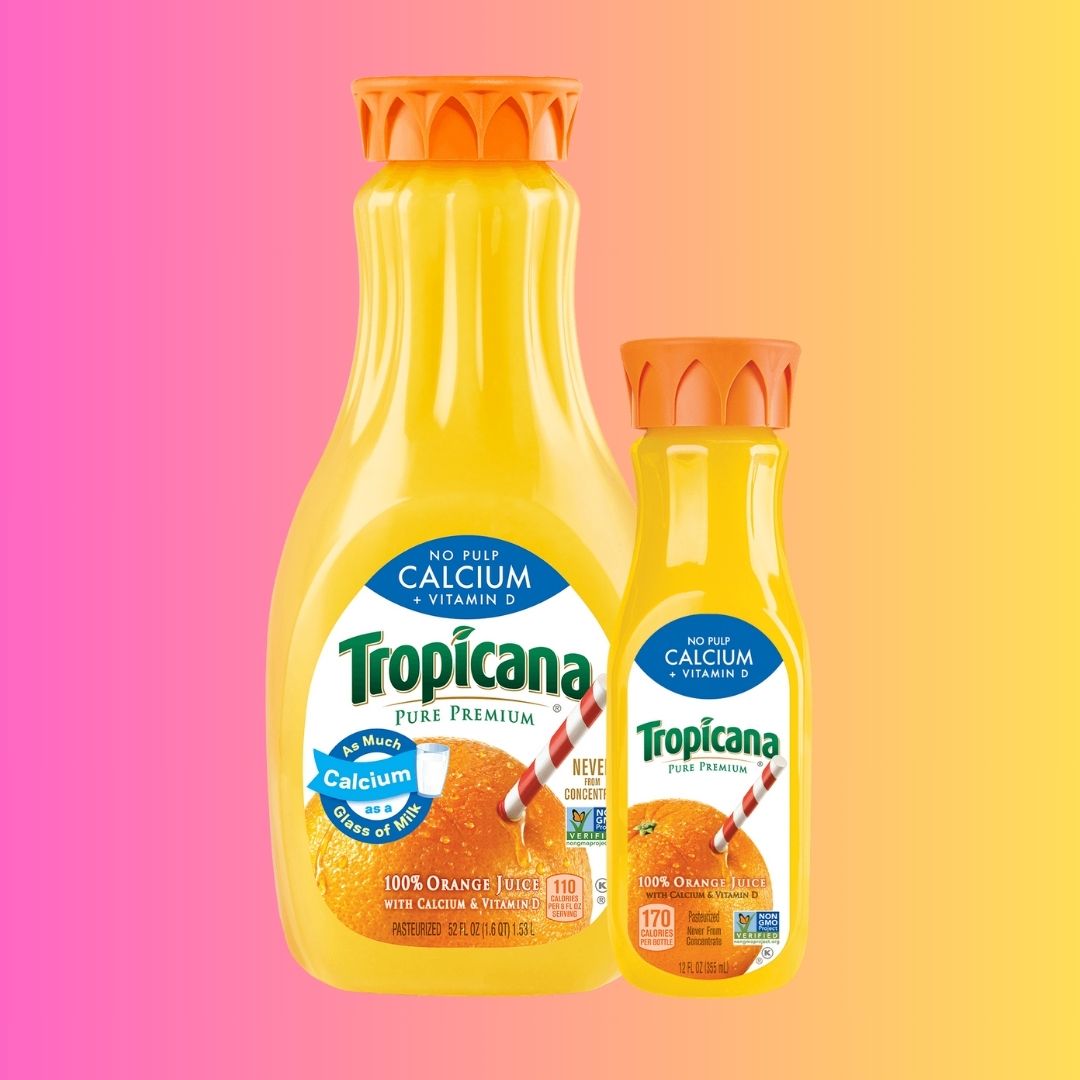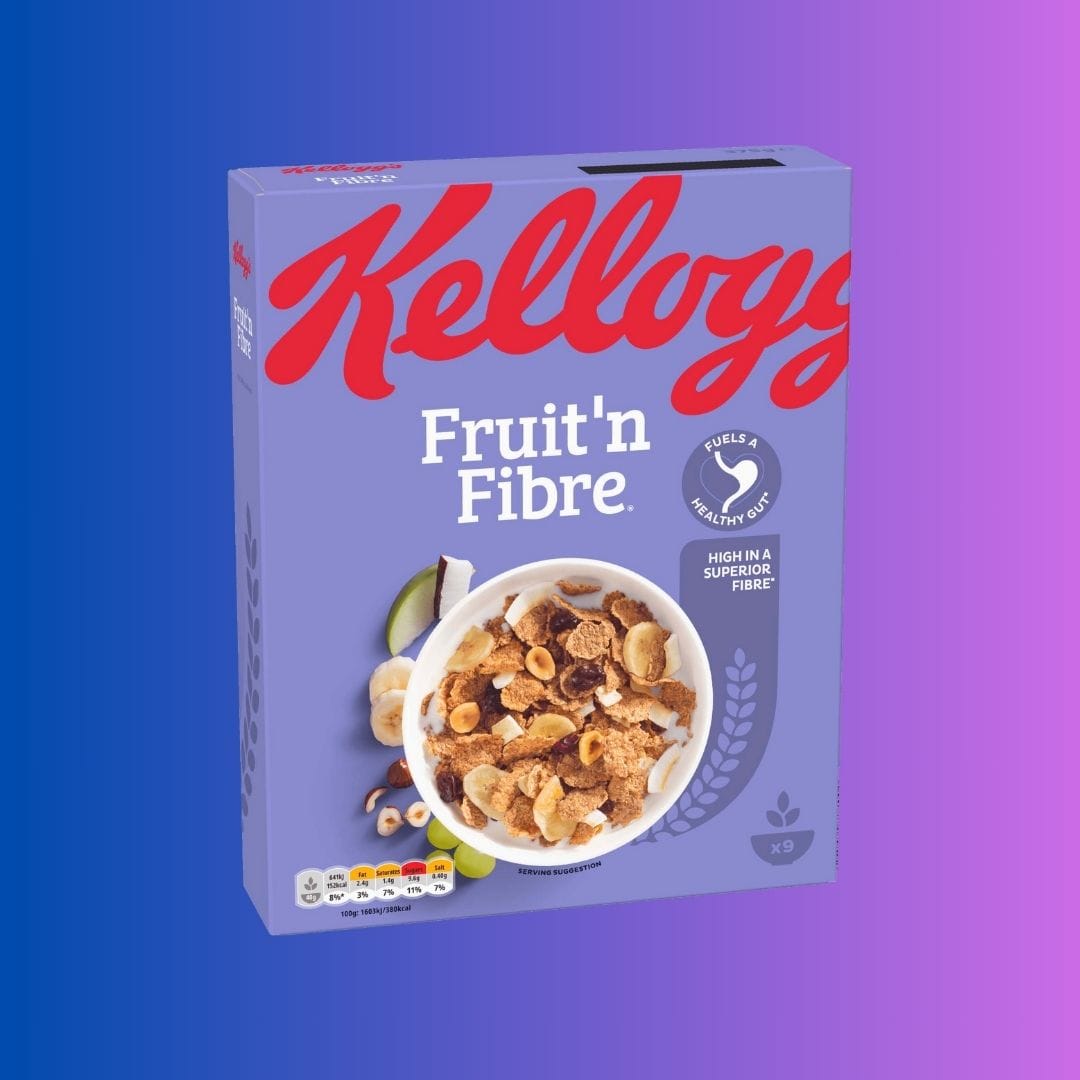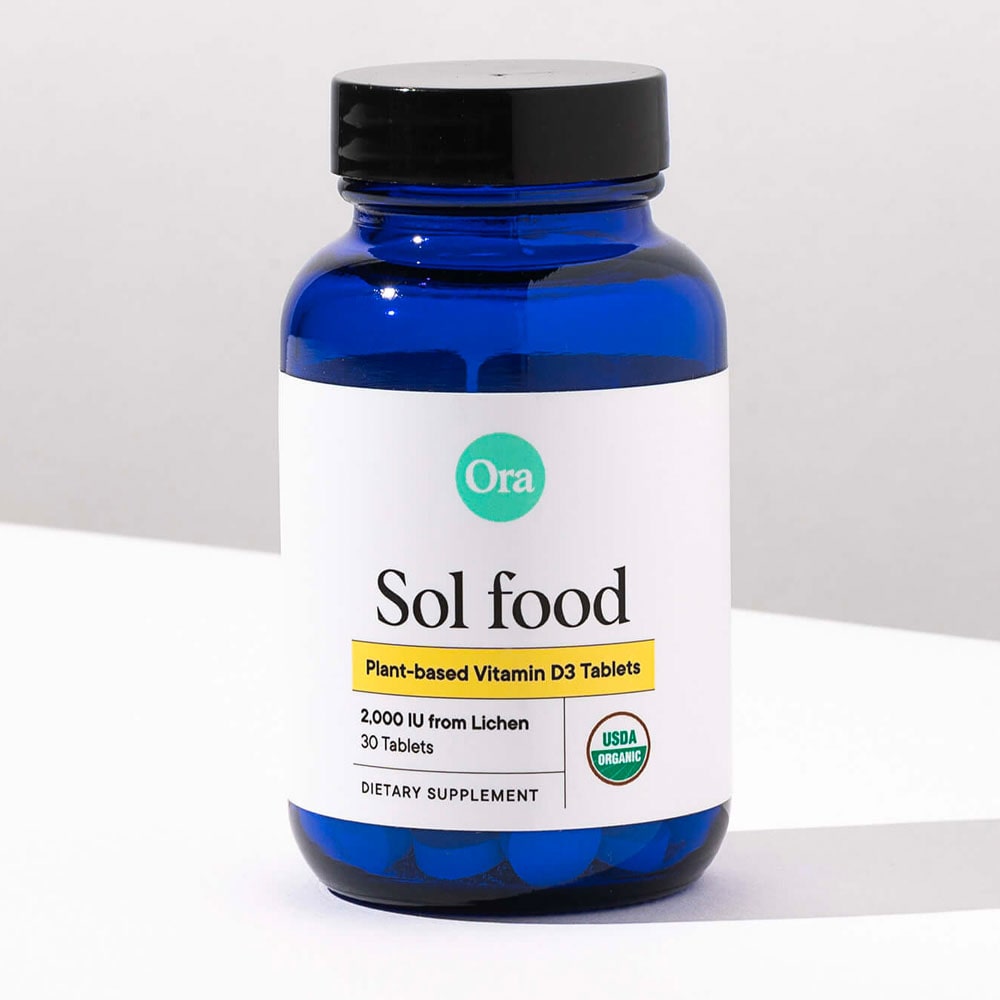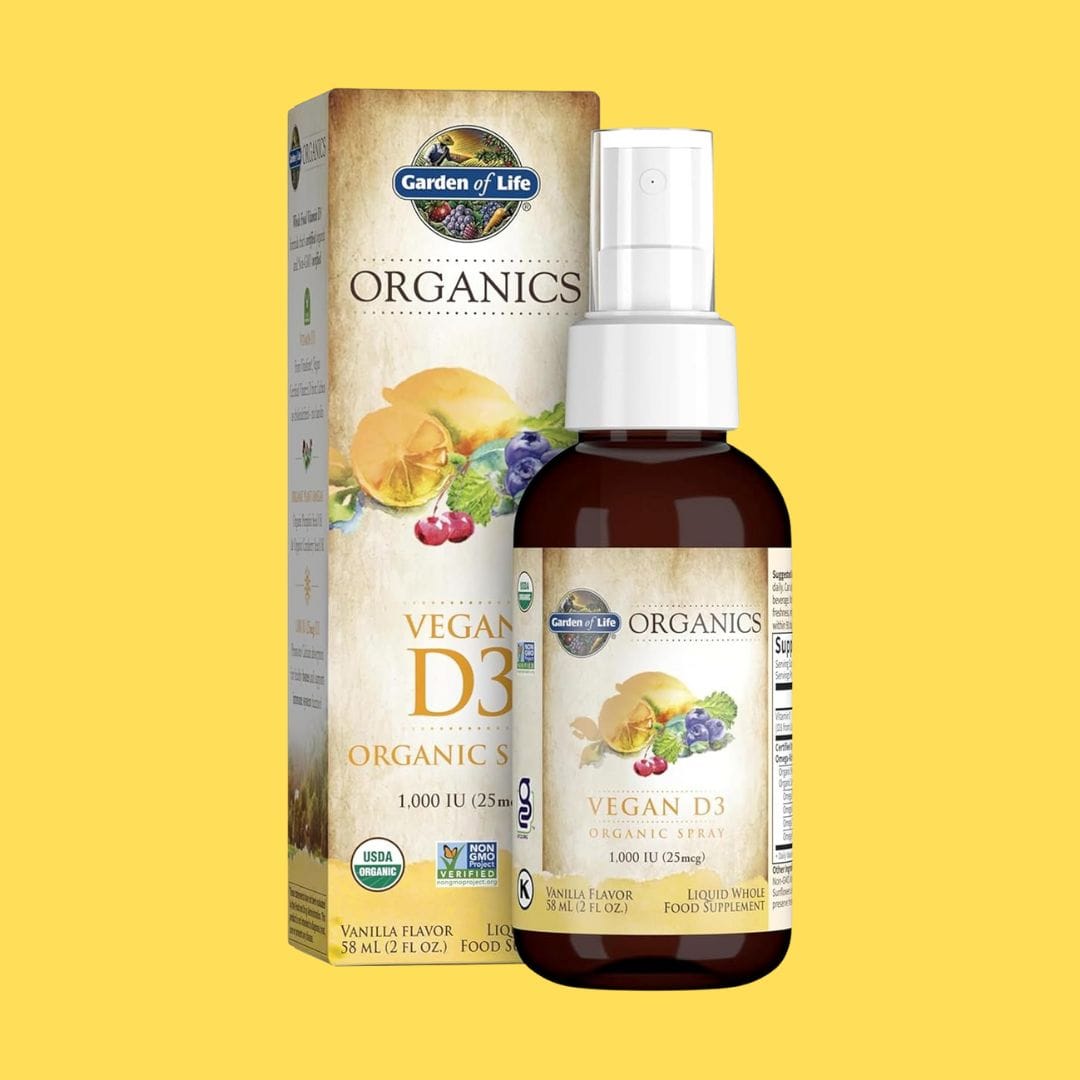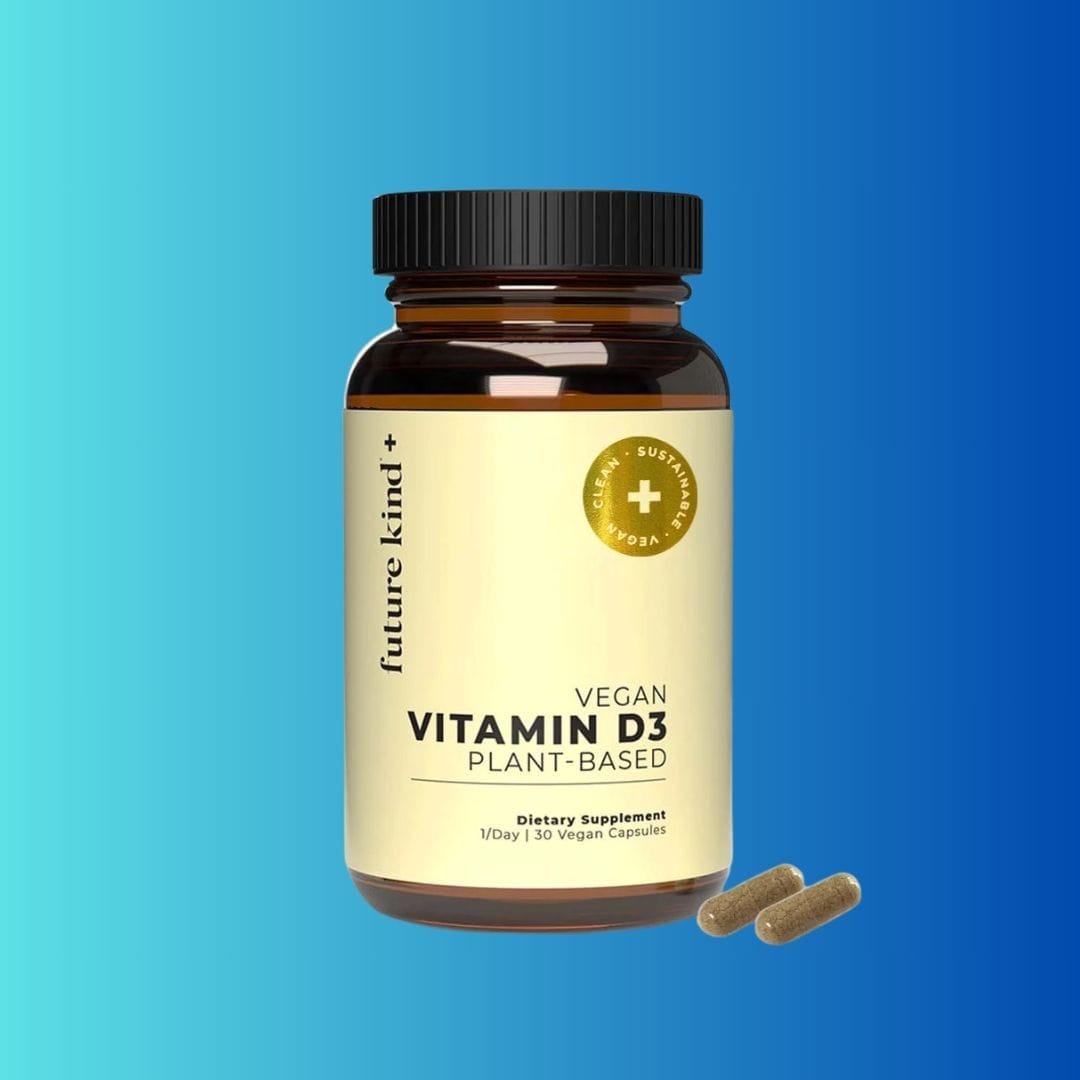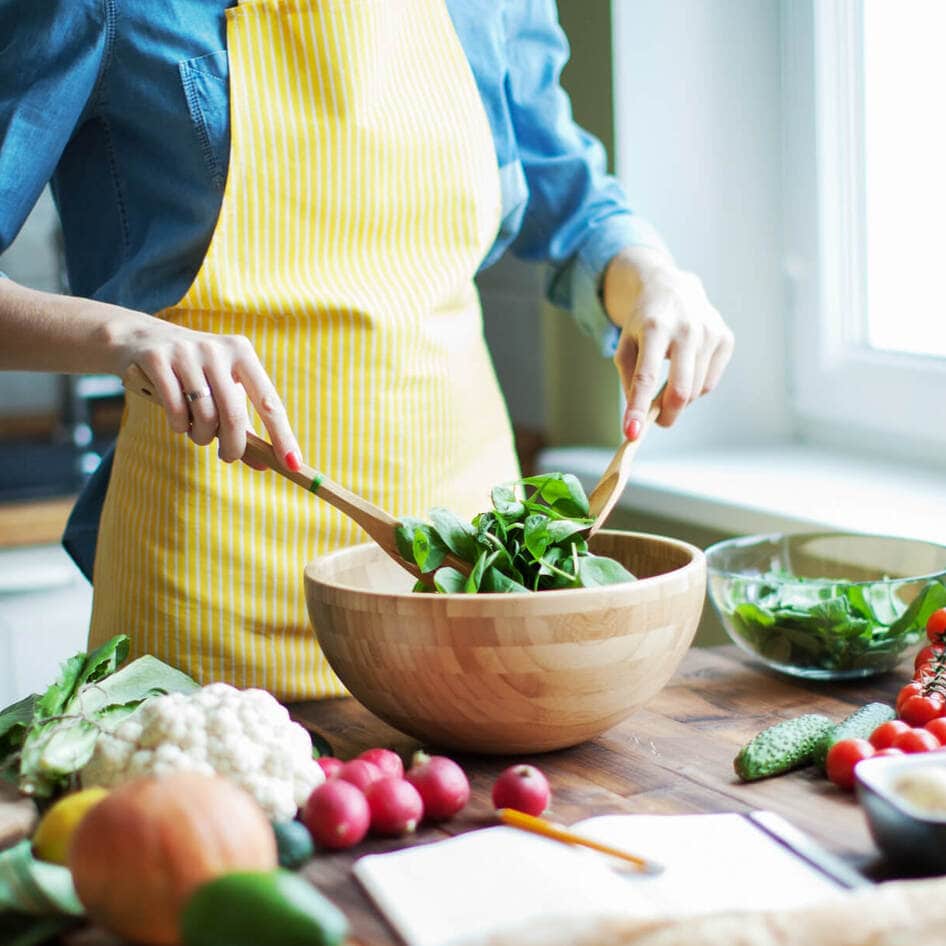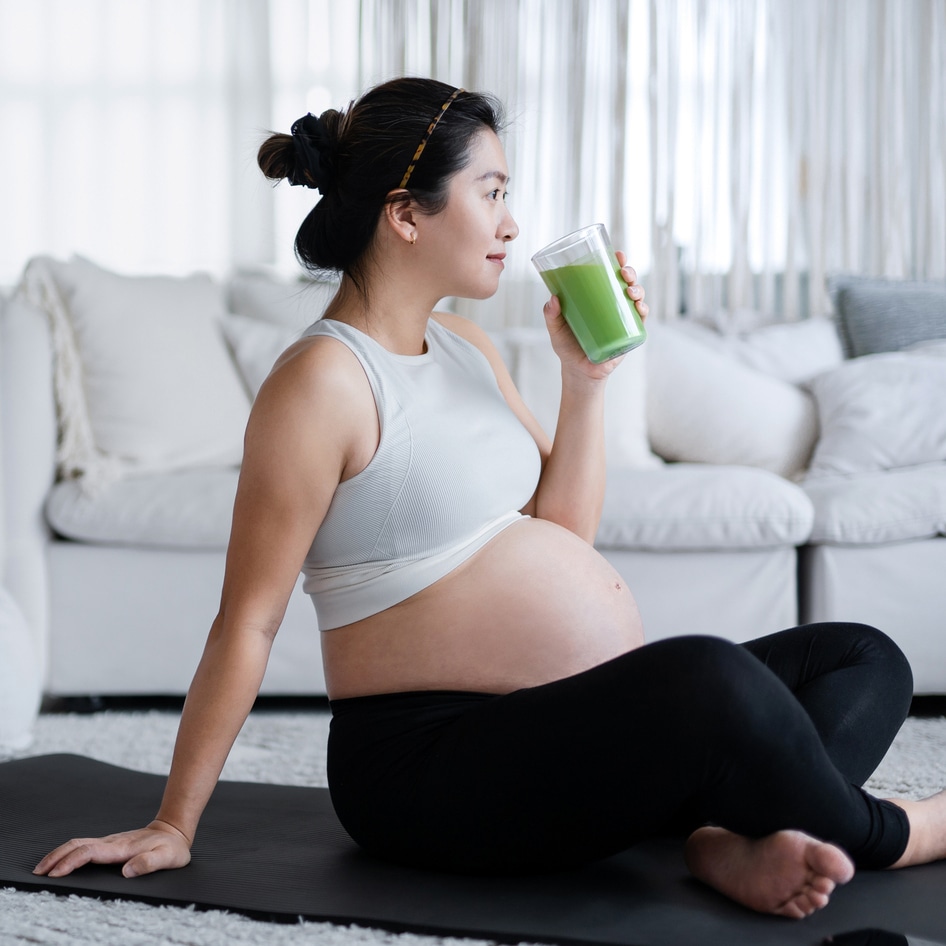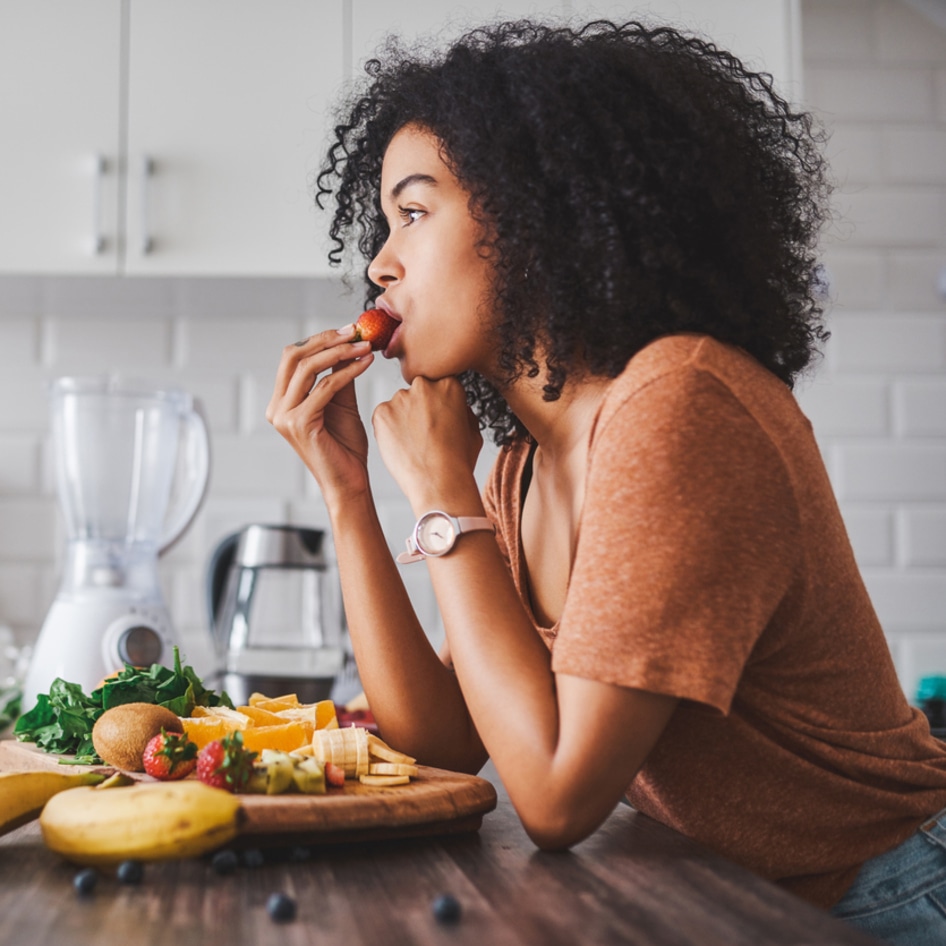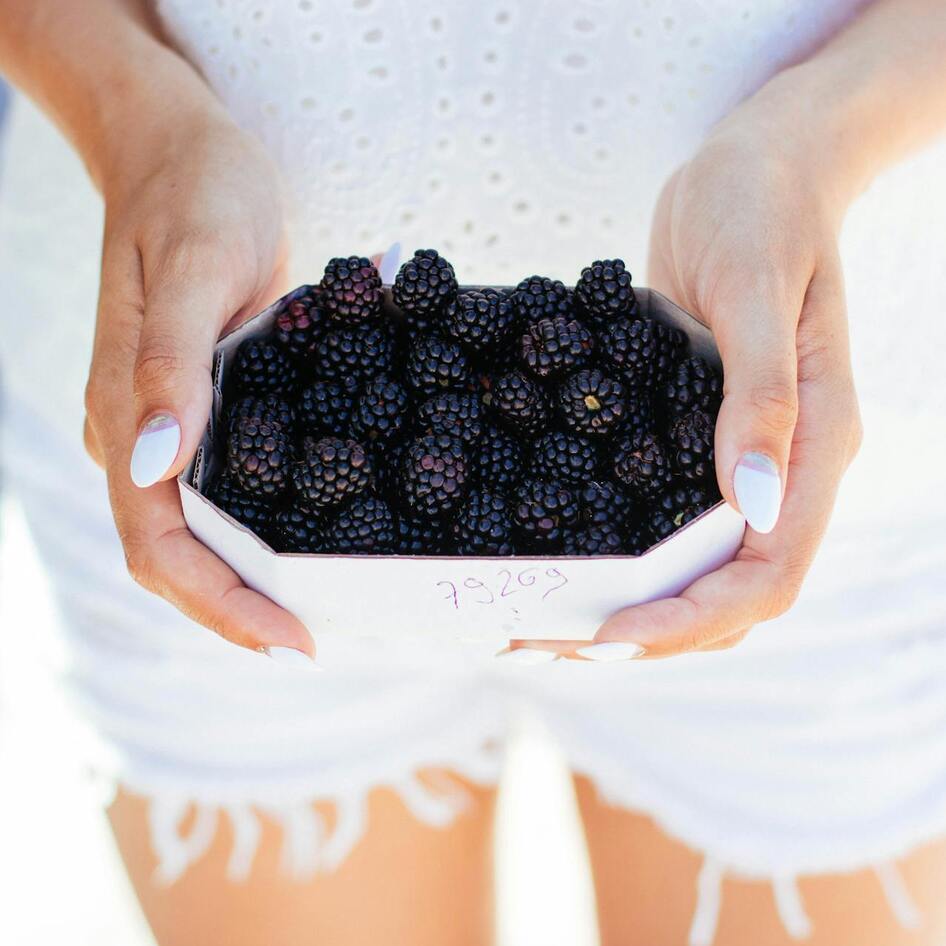Protein, carbs, and fat. Ahead of the 20th century, scientists believed that these were the only essential nutrients food had to offer us. But in the 1910s, things started to change. Research demonstrated that actually, food gives us important vitamins too, and paying attention to them may reduce our risk of getting sick. By 1948, scientists had identified all of the major vitamins we know about now, including vitamin D.
Known as the “sunshine vitamin” because our bodies produce it when exposed to sunlight, vitamin D is important for maintaining our physical health, but it may also help support our mental health, too. Here’s everything you need to know about vitamin D, including how to get enough on a vegan diet.
What is vitamin D?
Vitamin D is a fat-soluble vitamin that helps our bodies absorb calcium and phosphorus, both of which are essential nutrients for bone health. How much vitamin D you need depends on a few different factors. Those who live further north will need more because they are not exposed to enough sunlight throughout the winter months. (In some places in northern Norway, for example, the sun doesn’t rise at all from mid-November to late January.) But another factor is age, because, as we get older, our ability to produce vitamin D drops.
 Getty
Getty
According to the medical nonprofit the Mayo Clinic, the recommended daily amount of vitamin D for people aged from one year old to 70 years old is 600 international units (IU). Those over 70 need around 800 IU, while babies below the age of one need around 400 IU. It’s important not to take excessive amounts of vitamin D, as this can also harm your body by causing a build-up of calcium, which is also bad for your bones, as well as your kidneys and heart.
BECOME A VEGNEWS VIP: Get exclusive product deals, freebies, and perks galore!
The importance of vitamin D
Because of its close relationship with calcium, not getting enough vitamin D can have a negative effect on your bones. In fact, Karl Isogna MD told Yale Medicine that the consequences can include “increased rates of bone loss or even osteomalacia (‘soft bones’) in adults and rickets (a deforming bone disorder) in children.”
But vitamin D also has other benefits. “Many of the body’s organs and tissues have receptors for vitamin D,” notes Harvard Health. “Which suggest important roles beyond bone health, and scientists are actively investigating other possible functions.” The prestigious publication also notes that research suggests vitamin D may even reduce the growth of cancer cells and inflammation, as well as help the body to control infections.
 Cottonbro Studio/Pexels
Cottonbro Studio/Pexels
But physical health aside, vitamin D deficiency has also been shown to have an effect on mental health. Research suggests it may decrease the likelihood of depression. For example, one analysis published in 2014 examined 15 studies regarding vitamin D and depression. It indicated that increasing supplementation above 800 daily units may help improve symptoms.
What are vitamin D supplements made from?
There are two different types of vitamin D: vitamin D2 and vitamin D3. In supplements, the latter is often sourced from lanolin, a type of wax produced by sheep to help keep their wool dry, which means it isn’t usually vegan. (It can also be sourced from lichen, which comes from fungus and algae.) Vitamin D2, however, is usually vegan, because it is sourced from plants.
Vegan sources of vitamin D
Because the food sources that contain it are limited, it is not always easy to get enough vitamin D through diet. But that said, there are plenty of other ways to get enough, even as a vegan. One way is via supplementation (which we’ll explore next), but getting enough sunshine is also important. And, while they aren’t as abundant as some other vitamins, there are some foods that are fortified with vitamin D. Here’s what you need to know.
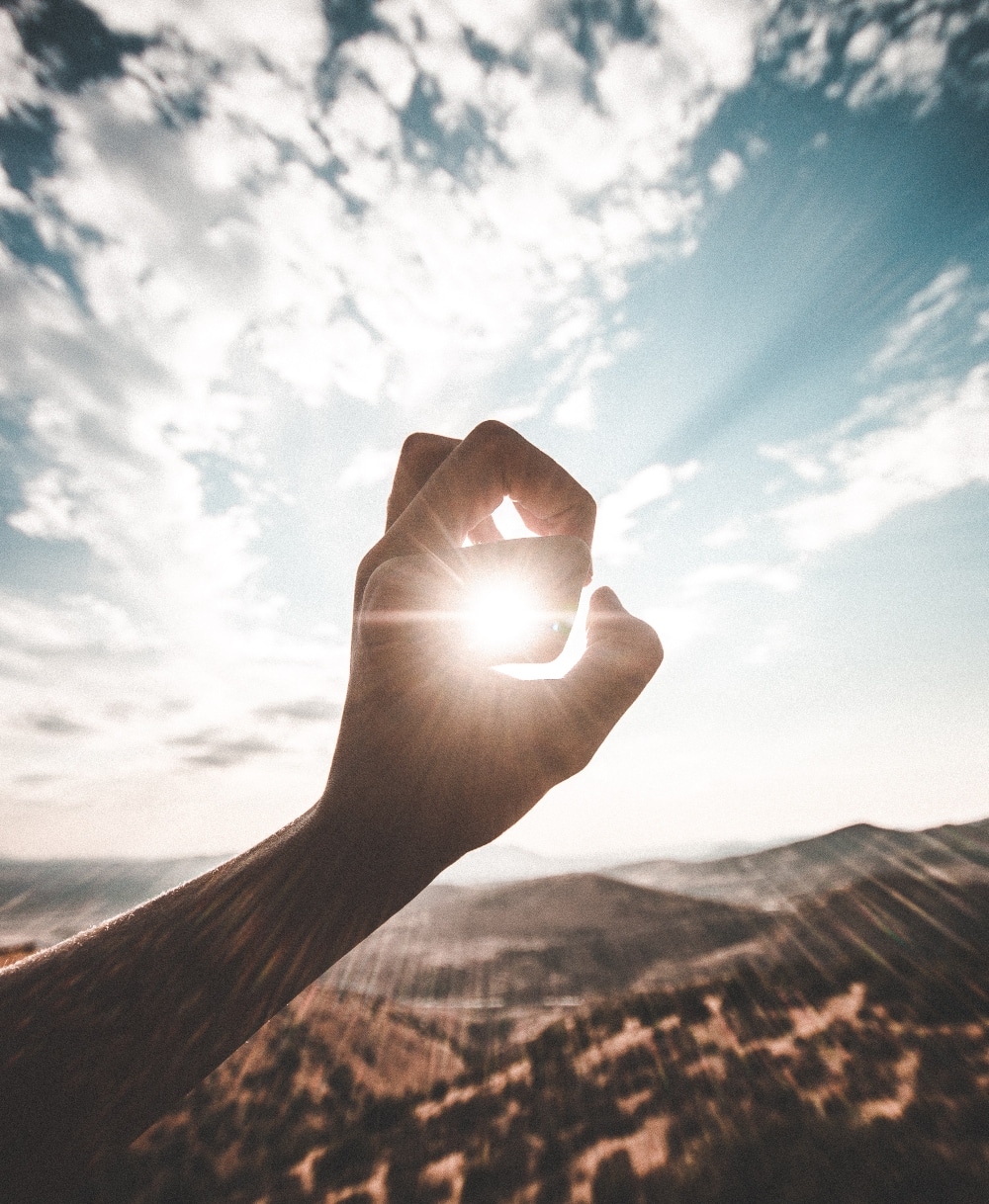 Unsplash
Unsplash
1 Sunshine
Going out in the sun is one of the best ways to get enough vitamin D. This is because when the sun’s rays hit the cholesterol in our skin cells, it kicks off a process of vitamin D synthesis. But this doesn’t mean you need to spend days on end sunning yourself to produce enough of the vitamin. Research suggests that in the UK, in the summer, 13 minutes of midday sunshine three times a week is enough.
It’s important to note that while the sun helps with vitamin D production, exposure can also be very unsafe, as it can cause you to burn and even increase the risk of skin cancer. Always practice sun safety if you’re going out in the sun by wearing a hat and sunglasses and using sunscreen.
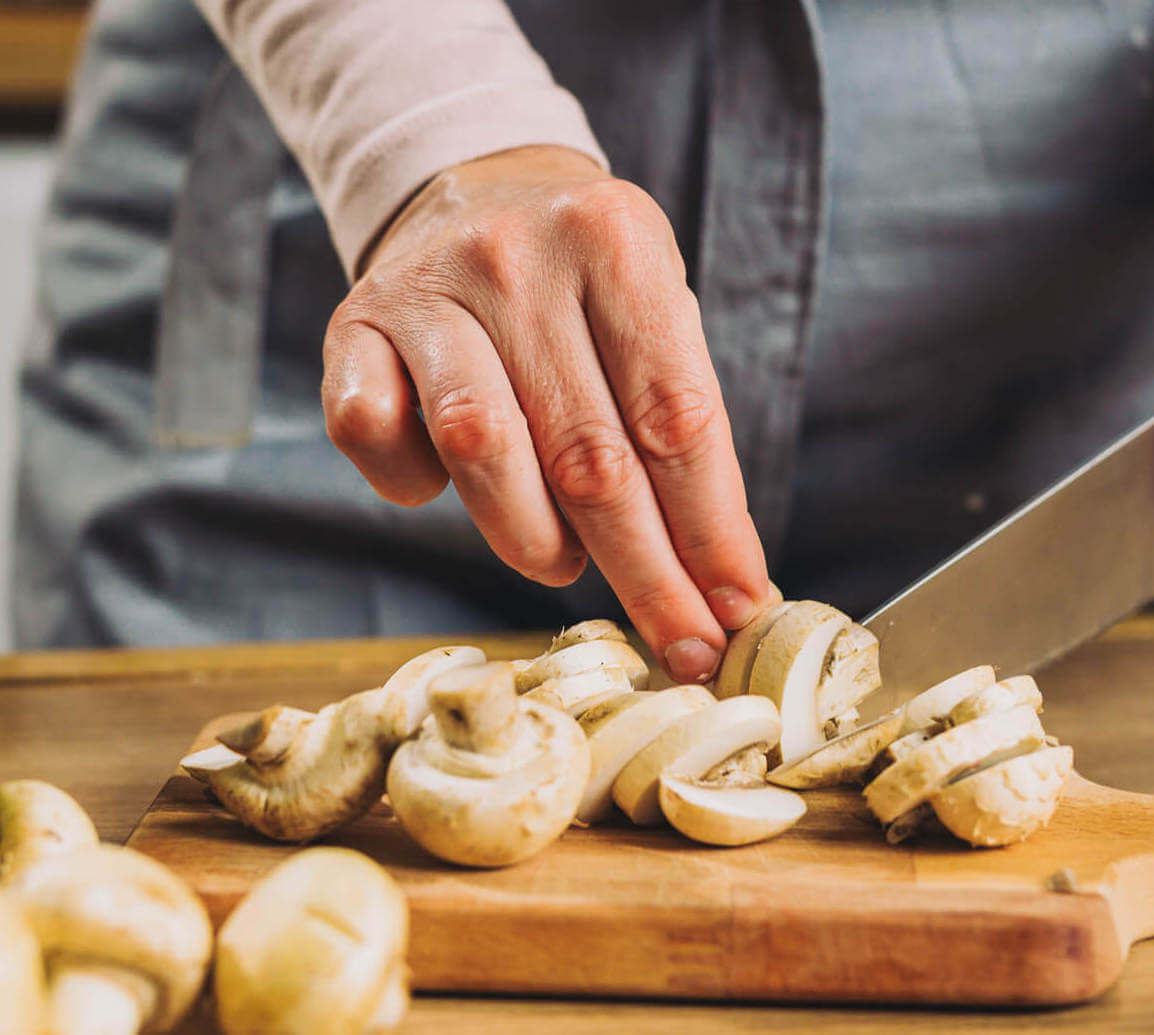 Cherry and Bees
Cherry and Bees
2 Mushrooms
Some types of mushrooms contain vitamin D because, like us, they generate the vitamin when they are exposed to sunlight. But not all mushrooms are grown in the light. In fact, some can grow in total darkness. So, if you’re in the grocery store, check the label on mushrooms to ensure they contain vitamin D.
3 Fortified drinks
While drinks don’t usually contain vitamin D naturally, some have the vitamin added to them. Look out for juices, like Tropicana’s No Pulp Calcium + Vitamin D, for example, that have had nutrients added to them. Plant-based milks also often contain vitamin D.
4 Fortified cereal
Just like milk and juice, cereals are also often fortified with vitamins. While many contain the non-vegan version of vitamin D3, a handful contain plant-based D2 instead. Kellogg’s Fruit ‘n Fibre, for example, contains vitamin D, and the brand has confirmed in the past that the cereal is vegan. Ready Brek is also free of animal products and contains several vitamins, including vitamin D.
Best vegan vitamin D supplements
The truth is, it’s not easy to get vitamin D through food alone. Plus, a significant number of people live in places where it isn’t sunny all year round. But don’t worry, if you’re struggling to up your intake, this is where vegan vitamin D supplements come in. Here are some of the best.
1 Ora Organics
New Zealand brand Ora Organics strives to create its products with as many plant-based, organic ingredients as possible. That’s why its vitamin D3 tablets are sourced from lichen instead of lanolin. To help with absorption, the brand recommends taking these tablets with breakfast.
Find it here
2Garden of Life
If you don’t like swallowing capsules or tablets, Garden of Life also offers vitamin D3, but this time, it’s in spray form.
Find it here
3 Future Kind
Future Kind says that lanolin is “icky” (and we kind of have to agree), so again, it uses lichen-based vitamin D3 in these supplements. Plus when you buy from Future Kind, you’ll get “Kind Coins,” which you can use for a future discount, or choose to donate to animal sanctuaries.
FIND IT HERE
For more on nutrition, read:
JUMP TO ... Latest News | Recipes | Guides | Health | Subscribe


